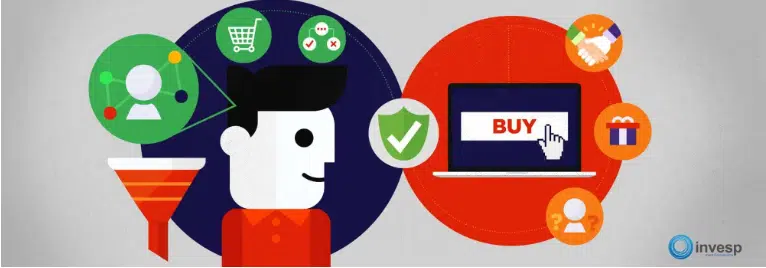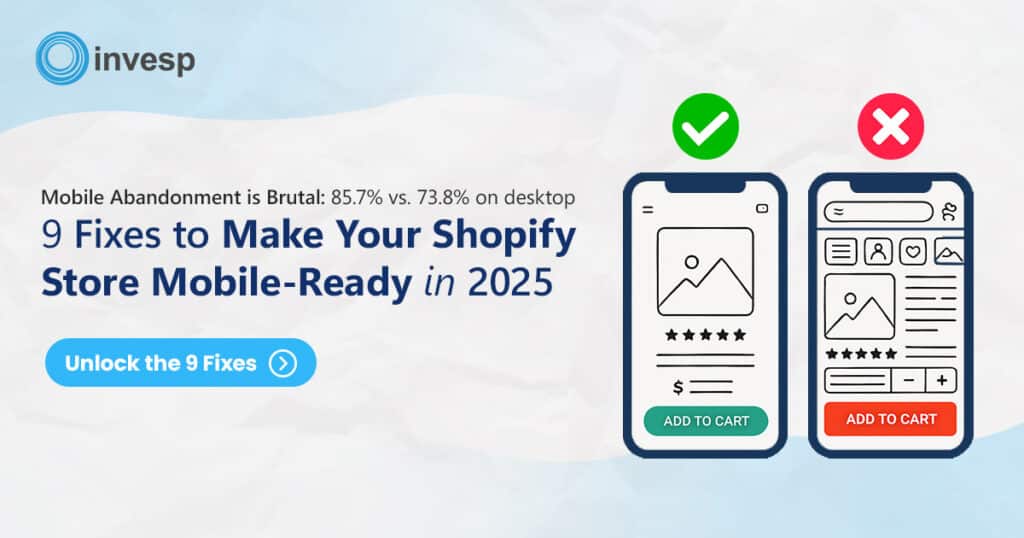I still recall the early days of running conversion optimization projects. Clients would come in with horrible websites, outdated designs, and never had paid any attention to usability.
You make a few fixes and test them against the control. And BAM! You have an amazing increase in conversions.
For most websites, long gone are these days.
Sites are well designed. Most good designers understand fundamental usability principals. Most websites have the basics covered.
The good news is that we can now focus on more pressing conversion issues. The bad news is that it takes significantly longer to uncover and fix conversion issues.
Sitting in on three sales calls for conversion optimization companies
Image Source: Sean Mclean
A little background: Over the last three weeks, our largest enterprise client decided they want to bring in another CRO firm to handle optimization for their mobile application. This is an area where we are developing our experience in. While we have done hundreds of website optimization projects over the years, we conducted less than twenty conversion optimization for mobile apps.
It makes life easier to be very honest with the client as opposed to experimenting and not delivering results.
So, the client asked me to sit in on calls with three CRO firms. The goal was to listen to how they handle the project and to give the client an assessment of each firm. Fair enough. Each of the companies that presented knew who I was and the call.
One thing that caught my attention in every presentation is the focus on the low hanging fruits.
Each team that presented used the term three or our four times as a selling point. They can come in, focus on the low hanging fruits, deliver results and then focus on more complex conversion issues.
I have a major problem with that type of angel. Mind you, in no way am I judging the quality of the work these firms will do. My objection is the way a sales executive tried to oversimplify conversion optimization. I can hear each team saying: your application is full of low hanging fruit. We will come in and fix them. You will see a fantastic increase in conversions.
One firm promised over a 260% increase in conversions. The second firm promised 6x the return on investment. The third firm promised a 300% increase in conversions. And these are not fly by night operations. These are well-established conversion companies.
Making such promises might get you the contract. However, they will hurt your project and your delivery team.
Can they deliver such results? I can see with 99% confidence that they will not deliver the results they promised.
When do I stop a sales call?
It rarely fails.
A company contacts us asking for help with increasing their website conversion rate. As we go through our initial analysis of the website to determine if there is a possibility to work together, we hear the typical question: what kind of results should we expect?
“I do not know.”
It is not comforting to say it, and it is not reassuring to hear it.
Then, the prospective client follows up with another comment:” I want you to focus on the low hanging fruits in the initial stage. That should give us a good boast to start with.”
Unless the prospective client has a horrible website, my response is that the site does not have atrocious usability issues. It does not have low hanging fruits.
I have been doing CRO since 2006. I can comfortably say that clients who are searching for low hanging fruits rarely find them. And they rarely stick around to see any significant increases in conversions. Conversion optimization leaves a bad taste in their mouth. They leave a bad taste in our mouth.
So, when seeing that a prospective client is refusing to understand this point, we walk away.
When do we run away from a prospective client?
Back in 2015, I made a simple rule. If a company comes to us as a last ditch effort to save their business, then we turn them away. We can hear the desperation in the prospective client voice. Their company is about to run out of cash in six months, and CRO is their hail-mary.
It happened twice that year. A publicly traded company signed a contract with us. As we started the project, we noticed that consistent panic in the head of marketing voice. He wanted to results and he wanted them from the first day. We never promised that, but it did not matter.
Fast forward two months later, we get on a weekly status call with the client to discover that 90% of the online marketing team has been laid off. A month later, we knew it was best to walk away from the project.
For those thinking of hiring a CRO firm: how do you make sure your project will be successful?
I have written previously about questions you should ask a conversion optimization firm before hiring them. This is a good starting point to make sure that you are hiring a firm that has the capabilities to deliver the results you are expecting.
Here are a few additional things to keep in mind:
Define a clear goal and success criteria for the project: What do you want to achieve by conducting a conversion optimization project? Are you solely focused on increasing conversions? Are you looking to improve customer satisfaction and enhance the usability of your website? Is the primary goal of the project to learn how to conduct a conversion project correctly so you can grow an in-house talent to run these projects in the future? Each of these is a valid goal. Yes, you can achieve several of them at the same time. But have a clear vision that you agree on internally.
Have the right expectation: Unless you have a horribly designed website with poor usability, do not expect miracles to happen. If a firm is promising to double your conversion rates, then run away from them. Just run away. If your goal is to increase revenue, then does the project make sense if you only see a 25% increase in conversions after a year? Would that increase cover all the costs associated with the project?
Do you have the patience to run a conversion project? If you are expecting results in two or three months, then save your money and don’t do CRO. Increasing conversions requires skills, patience and time. You are attempting to unlock visitor psychology. Many have tried, and many have failed. Because CRO involves time, make sure that you trust the partner you will work with.
Understand where your website is: Not every site should be optimized for conversion. Sometimes, you are better off creating a new website altogether. If your website is outdated, you can spend months optimizing it. A better approach to through the old site and start with a fresh new design.
Can you consistently drive traffic to your website? Conversion optimization is successful when can maintain a steady flow of visitors to the website or landing page. If you are struggling to bring visitors, then start with solving that problem.
Are you buying A/B testing services instead of revenue improvement?
Image Source: dgtully
I am not going repeat the broken record of AB testing is not conversion optimization.
Increasing conversion rates is not a one-off project. It is a different way for your company to do business. It never stops.
For many conversion optimization firms, AB testing is the holy grail of CRO. They do a lot of customer research, a lot of analytics analysis, but in the end, it is all about AB testing.
We conducted a conversion rate audit for a large SEO firm a couple of years ago. Our recommendations had about ten pages. Four pages focused on the website providing detailed suggestions of what they should fix. Six pages concentrated on how they positioned their service, how new prospects were handled and how their sales team sold the engagements. The CEO of the company did not appreciate any of these recommendations. His words were,” I did not expect a CRO firm to give me anything besides what to fix on the website.” Everything else works just fine.
Fast forward two years later, they have not implemented a single recommendation we provided.
So, are you starting a project to increase conversions or are you buying a pure AB testing service? If you are looking to increase conversions, then the CRO firm should dig deep into all aspects of your business. They should advise you on brand, on messaging, on handling customers, on business process, on your website and campaign designs.
For companies offering conversion services: How do you ensure you will deliver value to your clients?

Stop promising to deliver an outrageous increase in conversion rates: Unless you are dealing with an amateurish website, you will not double conversion rates. You are just shooting yourself in the foot by promising results that you cannot deliver.
Avoid desperate clients: If the client business is about to go bankrupt and you think you can come in and save them, you are better off walking away.
Re-think your approach to you CRO: conversion optimization is beyond the web. Look at all aspects of your client business, uncover weak points and fix them. A/B testing is a tool. You should feel free to have a couple of months on a project where you are helping the client without running a single AB test.






